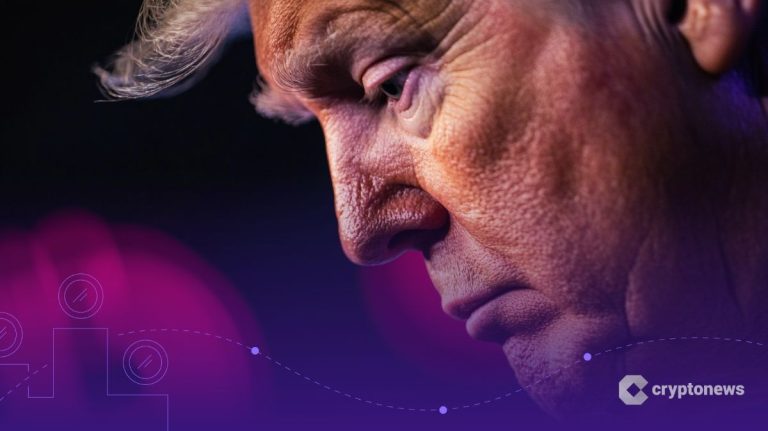
Robinhood erupts into crisis as EU regulators launch investigations into its blockchain-based “Stock Tokens,” now entangled in controversy as OpenAI and SpaceX publicly disavow ties to the investment product launched on June 30.
The Bank of Lithuania is investigating the legality of these tokenized assets following OpenAI’s alarm, which has highlighted the risks and regulatory chaos surrounding crypto-linked private market offerings in Europe.
“We have contacted Robinhood and are awaiting clarifications regarding the structure of OpenAI and SpaceX stock tokens as well as the related consumer communication,” said Giedrius Šniukas, spokesperson for the Bank of Lithuania.
“Only after receiving and evaluating this information will we be able to assess the legality and compliance of these specific instruments. The information for investors must be provided in clear, fair, and non-misleading language,” he added.
Robinhood’s Token Offering Draws Fire Over Misleading OpenAI Exposure
On July 1, OpenAI took to rejecting any association with the tokens, writing, “We did not partner with Robinhood, were not involved in this, and do not endorse it. Any transfer of OpenAI equity requires our approval; we did not approve any transfer.”
Elon Musk, who co-founded OpenAI but left in 2018, reacted sharply to the OpenAI denial with a blunt comment: “Your ‘equity’ is fake.”
However, his comment focused on OpenAI’s internal structure, and he did not address the SpaceX tokens that were also part of the promotion.
Contrary to the impression of ownership, and as noted by the company, Robinhood’s tokenized assets do not confer any real equity or voting rights. Instead, they are price-tracking contracts issued on Ethereum’s Arbitrum network, accessible only to users in the European Union.
Notably, at launch, the announcement sent Robinhood’s stock (NASDAQ: HOOD) soaring. On July 1, shares surged nearly 13% to an all-time high. The rally continued through early July, briefly pushing the stock above the $100 mark for the first time.
But the momentum has since cooled. At the time of writing, Robinhood shares are trading at $92.96, down 1.45% on the day.
Critics Slam Robinhood’s Token Design as Centralized, Illiquid, and Misleading
While the Robinhood stock token represents a major move in the crypto and tokenization space, debate over the ethics and legality of tokenizing equity in non-public companies has persisted and increased. As many see the legality as a gray area, critics argue the product may mislead retail investors by blurring the lines between actual equity and synthetic exposure.
“Robinhood’s OpenAI tokenized equity product would face severe SEC scrutiny in the U.S. due to its fundamentally opaque SPV structure that obscures critical investor protections,” said Kurt Watkins, founder of Watkins Legal.
“There is no guarantee the tokens will track OpenAI’s price since they lack meaningful underlying rights and could face liquidity issues,” he added.
The token design has also raised concerns about centralized control and limited utility. Ren, an investment partner at Electric Capital, described Robinhood’s implementation as a “walled garden,” noting that token transfers are restricted through a whitelisted wallet registry, which effectively blocks access to open DeFi protocols.
Still, some investors argue that Robinhood is simply democratizing access to traditionally exclusive markets. “All Robinhood did was establish a token that tracks the valuation of OpenAI on private markets,” wrote investor Amit Kukreja on X.
“You are not literally buying shares in those companies, but shares are just certificates; the digital representation of those assets is all that matters.”
While EU regulators continue to evaluate the legality of the product, Robinhood has stood by its offering, stating that the stock tokens are designed to provide retail investors with compliant and secure access to private equity.
Robinhood’s Crypto Business Powers 50% Revenue Surge in Q1
Robinhood’s push into crypto has played a significant role in its recent growth. The company’s cryptocurrency business contributed to a 50% year-over-year increase in Q1 revenue, with crypto trading alone generating $252 million, nearly double the amount from the same period in 2023.
That figure also slightly beat analyst expectations, indicating vigorous user activity even amid market volatility. The firm’s total transaction-based revenue, encompassing options, equities, and cryptocurrencies, increased by 77%, with Bitcoin trading being a key contributor.
Notably, the firm has also been expanding through acquisitions. This year, Robinhood acquired crypto exchange Bitstamp and Canadian firm WonderFi in a $179 million deal.






